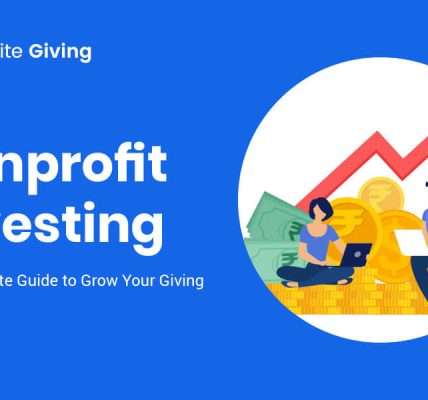The world of Forex trading can seem alluring‚ promising significant financial gains with the right strategies and knowledge. But before diving headfirst into this complex market‚ it’s crucial to understand the realistic earning potential. The truth is‚ Forex trading income varies widely‚ influenced by factors like experience‚ capital‚ risk tolerance‚ and market conditions. This article will explore the various aspects influencing Forex trader earnings and provide a realistic outlook on potential income in this field.
Factors Influencing Forex Trading Income
Several key factors determine the profitability of a Forex trader. Understanding these can help you assess your own potential for success.
Capital Investment
The amount of capital you invest directly impacts your potential returns. Larger capital allows for more significant trades and greater potential profits.
- Small Capital (e.g.‚ $100-$1‚000): Expect modest returns‚ focusing on learning and risk management. Profits will likely be small initially.
- Medium Capital (e.g.‚ $1‚000-$10‚000): Allows for more diverse trading strategies and potentially higher returns. Careful risk management is still crucial.
- Large Capital (e.g.‚ $10‚000+): Offers the opportunity for substantial profits‚ but also carries greater risk. Requires a deep understanding of the market and sophisticated trading techniques.
Trading Strategy and Risk Management
A well-defined trading strategy and disciplined risk management are essential for long-term success. Without them‚ even skilled traders can face significant losses.
Fact: Many successful Forex traders use stop-loss orders to limit potential losses on individual trades.
Experience and Skill Level
Like any profession‚ experience and skill play a vital role in determining earning potential. Beginners often experience losses while learning the ropes.
| Trader Level | Typical Characteristics | Potential Earnings |
|---|---|---|
| Beginner | Limited experience‚ learning basic strategies‚ high risk of losses. | Likely to experience losses or very small profits. |
| Intermediate | Developing consistent strategies‚ improved risk management‚ some profitable months. | Potentially earn a few percentage points per month‚ but still variable. |
| Experienced | Mastered effective strategies‚ disciplined risk management‚ consistent profitability. | Can potentially earn a significant percentage per month‚ but no guarantees. |
Realistic Income Expectations
It’s important to have realistic expectations about Forex trading income. Avoid falling for unrealistic claims of guaranteed riches.
Fact: The vast majority of Forex traders lose money. Success requires dedication‚ discipline‚ and continuous learning.
Percentage-Based Returns
Instead of focusing on specific dollar amounts‚ think in terms of percentage returns on your capital. A consistent 2-5% monthly return can be considered very good.
Consistency is Key
Focus on building a consistent track record of profitable trading. Avoid chasing quick profits or making impulsive decisions.
FAQ: Forex Trading Income
Here are some frequently asked questions about how much money Forex traders can make.
- Q: Can I get rich quick trading Forex?
A: It is highly unlikely. Forex trading requires skill‚ discipline‚ and patience. - Q: What is a realistic monthly return for a Forex trader?
A: A consistent 2-5% monthly return is considered very good. - Q: How much capital do I need to start Forex trading?
A: You can start with as little as $100‚ but larger capital generally allows for more flexibility and potentially higher returns. - Q: Is Forex trading a guaranteed source of income?
A: No‚ Forex trading involves risk‚ and there are no guarantees of profit. - Q: What are the biggest risks in Forex trading?
A: Leverage‚ market volatility‚ and emotional trading are some of the biggest risks.
So‚ are you ready to embark on this journey? Are you prepared to dedicate the time and effort required to learn the intricacies of the Forex market? Will you commit to developing a robust trading strategy and sticking to it‚ even when faced with losses? Can you manage your emotions and avoid impulsive decisions that could jeopardize your capital? Are you willing to continuously adapt and refine your approach as market conditions change? Are you aware that many fail‚ and are you prepared to face the possibility of losing money while you learn and grow? Ultimately‚ is Forex trading the right path for you‚ considering the potential rewards and the significant risks involved?
Is Forex Trading Right For You?
Given all the factors involved‚ are you truly comfortable with the level of risk associated with Forex trading? Have you realistically assessed your financial situation and determined how much capital you can afford to lose without significantly impacting your life? Are you prepared to dedicate countless hours to studying market trends‚ analyzing charts‚ and practicing your trading skills? Will you be able to resist the temptation of over-leveraging your trades in pursuit of quick profits? Can you maintain a disciplined approach to risk management‚ consistently using stop-loss orders and avoiding emotional decisions? Are you willing to accept that losses are an inevitable part of the learning process and use them as opportunities to improve your strategy? Have you considered seeking guidance from experienced mentors or joining a reputable trading community to learn from others? Will you stay updated on economic and political events that can impact currency values‚ and adjust your strategies accordingly? Can you handle the stress and pressure that comes with managing your own investments in a volatile market? Are you truly passionate about the world of finance and willing to commit to continuous learning and improvement? And finally‚ are you ready to face the possibility that even with your best efforts‚ you may not achieve the level of success you initially hoped for?
Finding Success in Forex Trading
But what if you are willing to put in the work? Are you ready to research different brokers and choose one that is reputable and regulated? Will you take advantage of demo accounts to practice your trading strategies without risking real money? Can you develop a clear and concise trading plan that outlines your goals‚ strategies‚ and risk management rules? Are you willing to track your trades meticulously to identify patterns and areas for improvement? Can you stay patient and avoid over-trading‚ waiting for the right opportunities to present themselves? Are you prepared to adapt your strategies as market conditions change and new information becomes available? Will you continuously seek out new knowledge and insights from reputable sources? Are you ready to embrace failure as a learning opportunity and use it to refine your approach? And most importantly‚ can you maintain a positive attitude and believe in your ability to succeed in the long run?
So‚ after considering all these questions‚ is Forex trading still something that appeals to you? Do you understand the inherent risks and the level of commitment required to potentially achieve consistent profitability? Have you developed a realistic understanding of the potential earnings and the factors that influence them? Are you prepared to invest the time‚ effort‚ and resources necessary to become a successful Forex trader? Can you approach the market with discipline‚ patience‚ and a strong focus on risk management? Is your motivation driven by a genuine interest in the financial markets‚ or simply by the allure of quick riches? Remember‚ Forex trading is not a get-rich-quick scheme‚ but a skill that requires dedication and continuous learning. And ultimately‚ will you be satisfied with the journey‚ regardless of the financial outcome?


